We often wonder, what is the difference between a contact center vs call center? Let us walk you through it. The choice between a call center and a contact center (such as ourselves) is critical, each offering unique communication channels beyond traditional phone support. A call center focuses on providing customer service strictly via phone call, setting the stage for traditional, one-dimensional customer interactions. Meanwhile, a contact center embraces a multi-channel approach, incorporating email, social media, chat, and more, to elevate customer experience and satisfaction.
Knowing the difference between a contact center and a call center is important for your customer service strategy. It shows how businesses can use these tools to keep customers satisfied and supported. The information below will explain the key differences between contact centers and call centers. This can help businesses as yourself choose the right model to grow their customer base while maintaining high customer satisfaction levels.
Defining Call Centers
So, what is an example of a call center? Call centers, by their traditional definition, are specialized departments within businesses focused on handling customer communications exclusively through voice calls. These centers can either be an in-house operation or outsourced to third-party providers, offering flexibility in how organizations manage their customer interactions.
Let’s see the key aspects of call centers include:
- Core Functions: They primarily handle inbound and outbound calls, call centers serve various purposes such as customer support, telemarketing, and debt collection. Inbound centers focus on resolving customer queries quickly, while outbound centers are proactive, reaching out for sales or feedback.
- Operational Structure: A call center’s team comprises agents, team leaders, quality assurance staff, and IT support, ensuring efficient handling of calls. The technology stack includes call management and monitoring software, IVR systems, and customer relationship management platforms to streamline operations and enhance customer service.
- Performance Metrics: Success in a call center is measured through key performance indicators (KPIs), such as call resolution times, agent productivity, and customer satisfaction levels. These metrics help organizations gauge the effectiveness of their call center operations and identify areas for improvement.
- Continuously Improving Expertise: Call center teams receive ongoing training to elevate their product mastery and superb service skills. Dedicating to coaching and quality assurance ensures every interaction delivers an exceptional experience.
If you are in telecommunications, financial services, and healthcare industries, where quick and direct communication is crucial, call centers remain an essential part of many businesses. Call centers primarily handle voice calls, but to meet evolving customer expectations, they have adapted by incorporating more technology-driven solutions.
Next, we explore, “What is an example of a contact center?”
Understanding Contact Centers
Is it actually different than a call center? Sure you have always looked for for more information on contact center vs call center? You always thought it’s the same, right? But contact centers offer a more advanced and nuanced approach to customer service, harnessing cutting-edge technology and multichannel capabilities to deliver an exceptional experience. As we dive deeper, you’ll discover the game-changing advantages that set contact centers apart, leaving you on the edge of your seat, eager to revolutionize your customer interactions.
Let’s see the key insights include:
- Automation and AI Integration: Contact centers leverage automation and artificial intelligence (AI) to streamline operations and enhance agent efficiency. This includes auto-generating knowledge articles, providing personalized live chat responses, and pulling real-time data to aid in problem-solving.
- Omnichannel Support: Unlike call centers, contact centers offer support across multiple channels, including voice, email, live chat, social media, and video. This not only collects more customer data but also improves engagement and provides a connected experience.
- Customer Self-Service and Agent Skills: Contact centers offer more customer self-service options and require agents to possess a broader skill set, such as multitasking and digital proficiency. These capabilities are crucial for managing the omnichannel nature and delivering a personalized customer experience.
- Analytics and Reporting: Contact centers utilize advanced analytics and reporting tools to gain insights into customer interactions, agent performance, and operational metrics. These insights drive data-driven decisions to improve efficiency and customer satisfaction.
- Integration with Business Systems: Contact centers integrate with other business systems, such as customer relationship management (CRM) and enterprise resource planning (ERP) systems. This integration allows agents to access customer data and perform transactions seamlessly, enhancing the overall customer experience.
- Knowledge Management: A robust knowledge management system provides agents with up-to-date information and solutions to common customer inquiries. This empowers agents to resolve issues quickly and consistently, improving first-contact resolution rates.
- Customer Journey Orchestration: Contact centers orchestrate and personalize customer journeys across multiple touchpoints, ensuring a consistent and cohesive experience. This includes proactive outreach, context-based routing, and seamless handoffs between channels.
Safe to say, contact centers leverage cutting-edge technologies and multichannel capabilities, providing a seamless, customer-centric experience through unified voice, email, chat, social media, and more. This omnichannel approach ensures consistent, personalized service across touchpoints, meeting modern customer demands and driving exceptional satisfaction.
Comparative Analysis
Choosing between a call center and a contact center boils down to understanding your business needs and customer expectations. Here’s a breakdown to help guide the decision:
- Customer Base Size and Support Channel Importance:
- Call Centers are ideal for businesses with a smaller customer base or those prioritizing voice communication. They excel in handling high volumes of calls efficiently.
- Contact Centers suit businesses aiming to provide support across multiple channels (email, chat, social media) and have a larger, more diverse customer base. They cater to customers preferring digital communication methods.
- Issue Complexity and Personalized Service:
- For straightforward issues that can be resolved quickly over the phone, Call Centers offer a direct and efficient solution.
- Contact Centers, with their omnichannel support, are better equipped to handle complex issues that may require more personalized customer service. They allow for a more tailored approach to problem-solving across various platforms.
- Customer Expectations:
- Today’s customers expect quick, efficient, and accessible service. Call Centers meet these expectations through immediate voice support.
- However, with the rise of digital communication, many customers also expect the flexibility to reach out via their preferred channel, making Contact Centers a necessity for businesses aiming to meet modern customer service expectations.
We hope that clears everything there is between contact center vs call center for you.
Final Thoughts
As we have just read, the article discusses the differences between contact center vs call center. Now we understand better that a call center focuses on phone communication, while a contact center handles various channels like phone, email, chat, and social media.
We are in a fast growing era and, customers expect businesses to engage with them through multiple platforms. For companies looking to improve customer satisfaction and increase sales, a contact center is the better solution. RabyIT’s contact center services excel at seamless communication across all channels, ensuring customers receive prompt and efficient support.
By partnering with RabyIT, your business can enhance customer engagement, boost loyalty, and drive revenue growth. RabyIT’s cutting-edge contact center technology and expertise will help you meet and exceed customer expectations, giving you a competitive edge in the market.
Don’t let poor customer communication hinder your success any longer now that you know the different between contact center vs call center. Hire RabyIT today and experience the transformative power of their contact center solutions, unlocking the path to unparalleled customer satisfaction and business growth.
FAQs
What distinguishes a contact center from a call center?
A contact center differs from a call center in the types of communication it manages. Call centers are focused on handling voice calls, whereas contact centers deal with a variety of channels including phone, SMS, email, and social media. Both are utilized by support and sales teams to engage with customer requests, whether incoming or outgoing.
What are the four fundamental components of a contact center?
The four key components of a contact center are Agents, Supervisors, Automations, and Reporting. Each element is crucial for the contact center to operate efficiently and effectively. Agents interact with customers, Supervisors oversee the operations, Automations streamline processes, and Reporting provides insights into performance.
What are the two main categories of call centers?
Call centers are classified into two main types: In-House and Outsourced. In-House call centers are operated by the company itself, while Outsourced call centers are managed by third-party organizations.
How does a contact center differ from a CRM system?
A contact center is responsible for handling customer service interactions across multiple channels, while a CRM (Customer Relationship Management) system is a tool that agents may use within a contact center to manage customer information and interactions. The CRM aids in organizing and facilitating effective service delivery.




